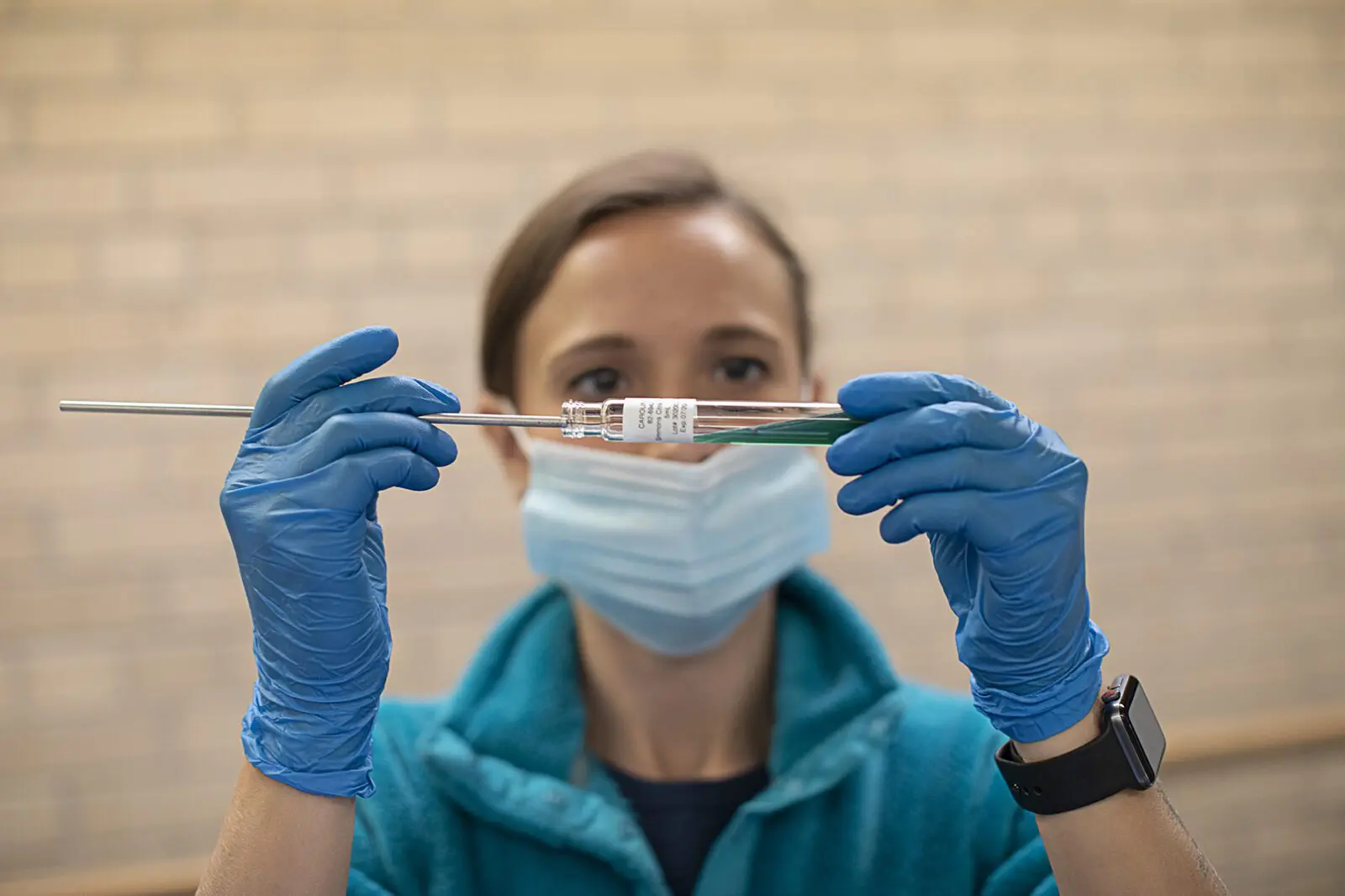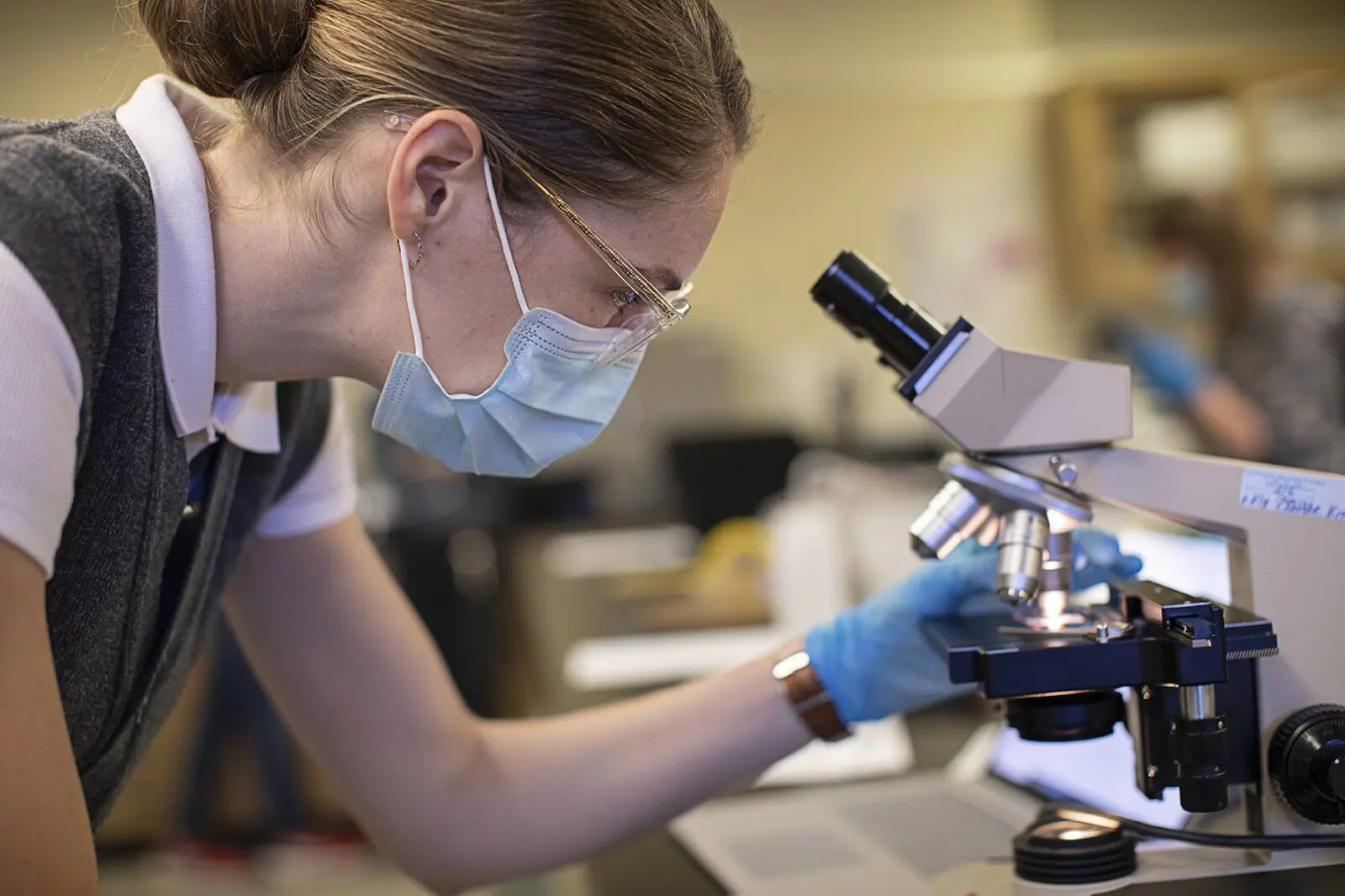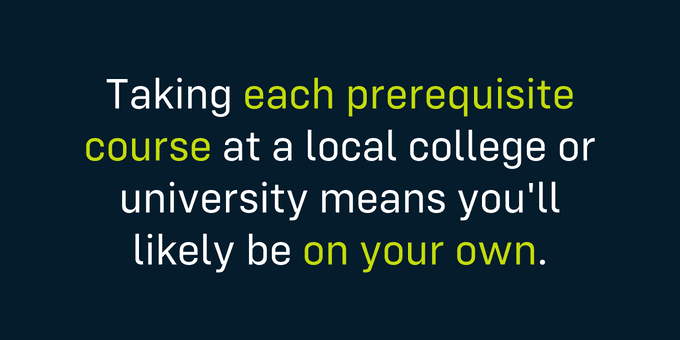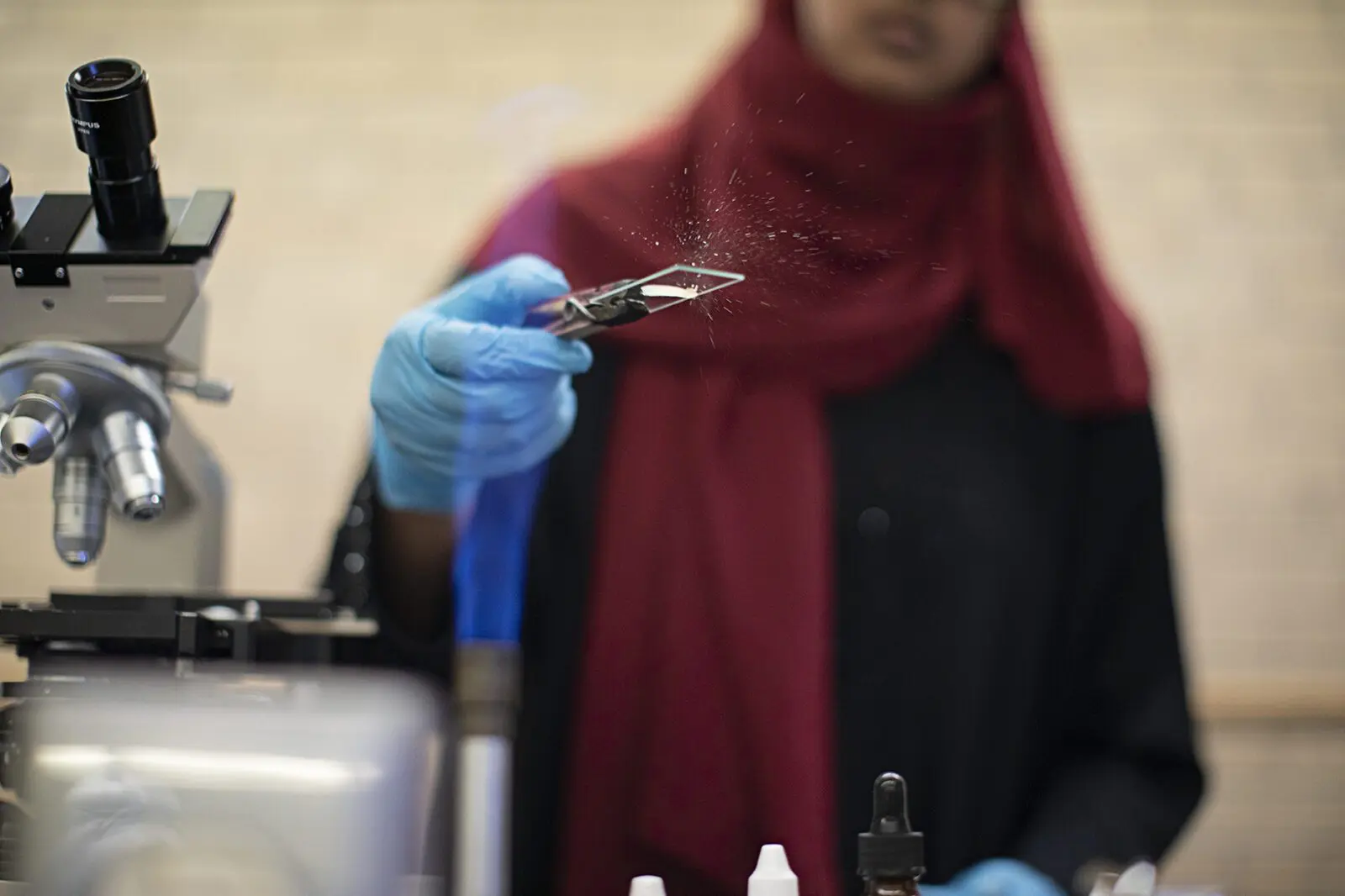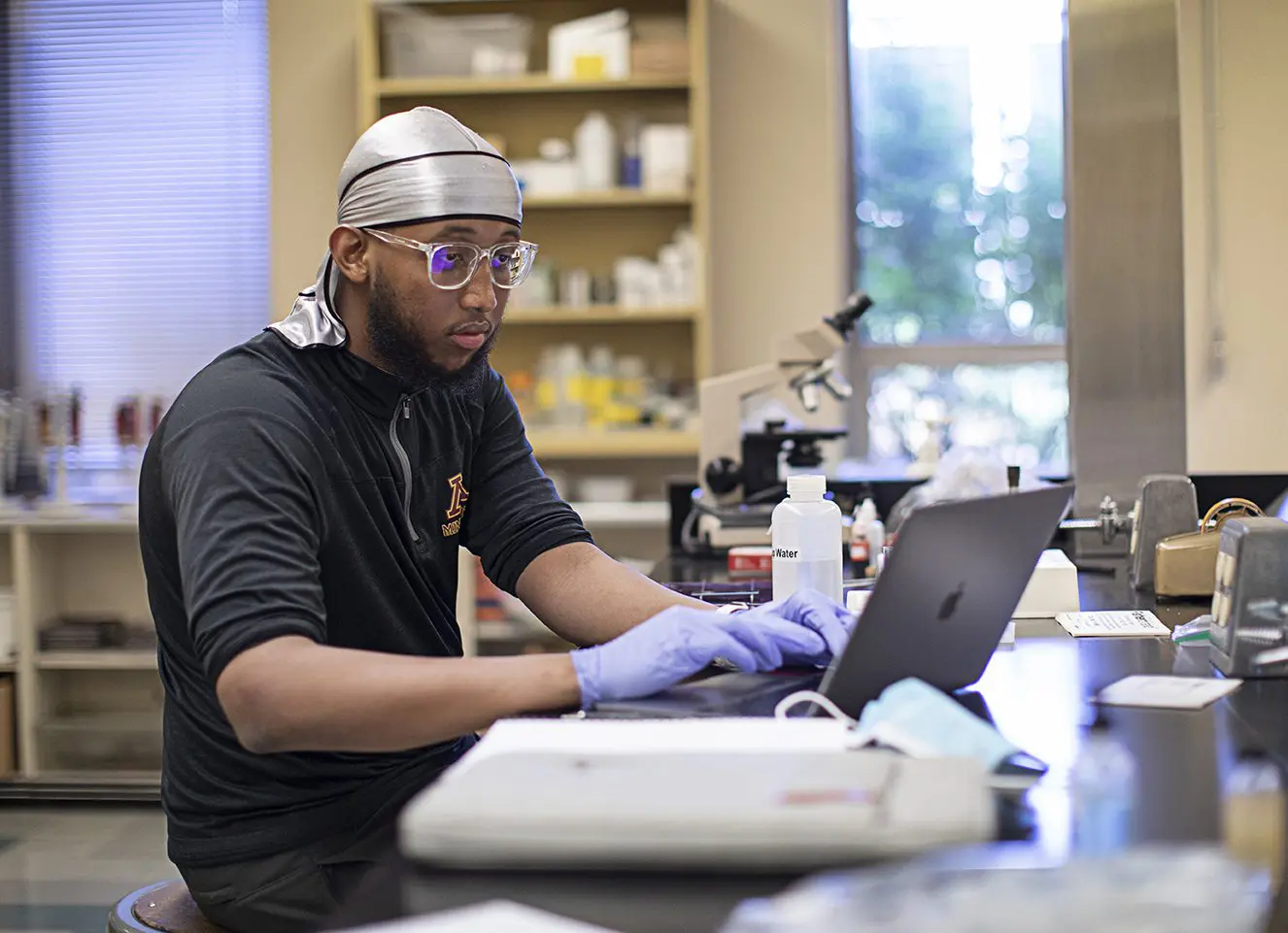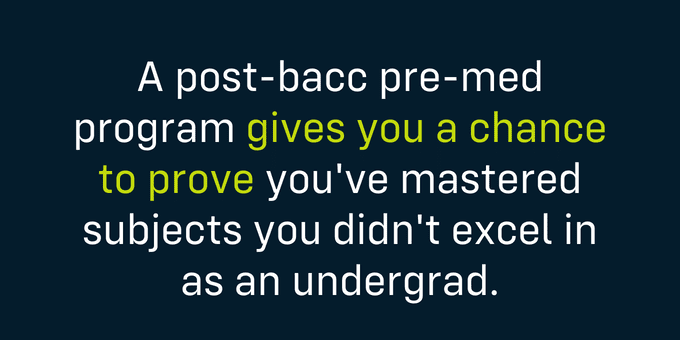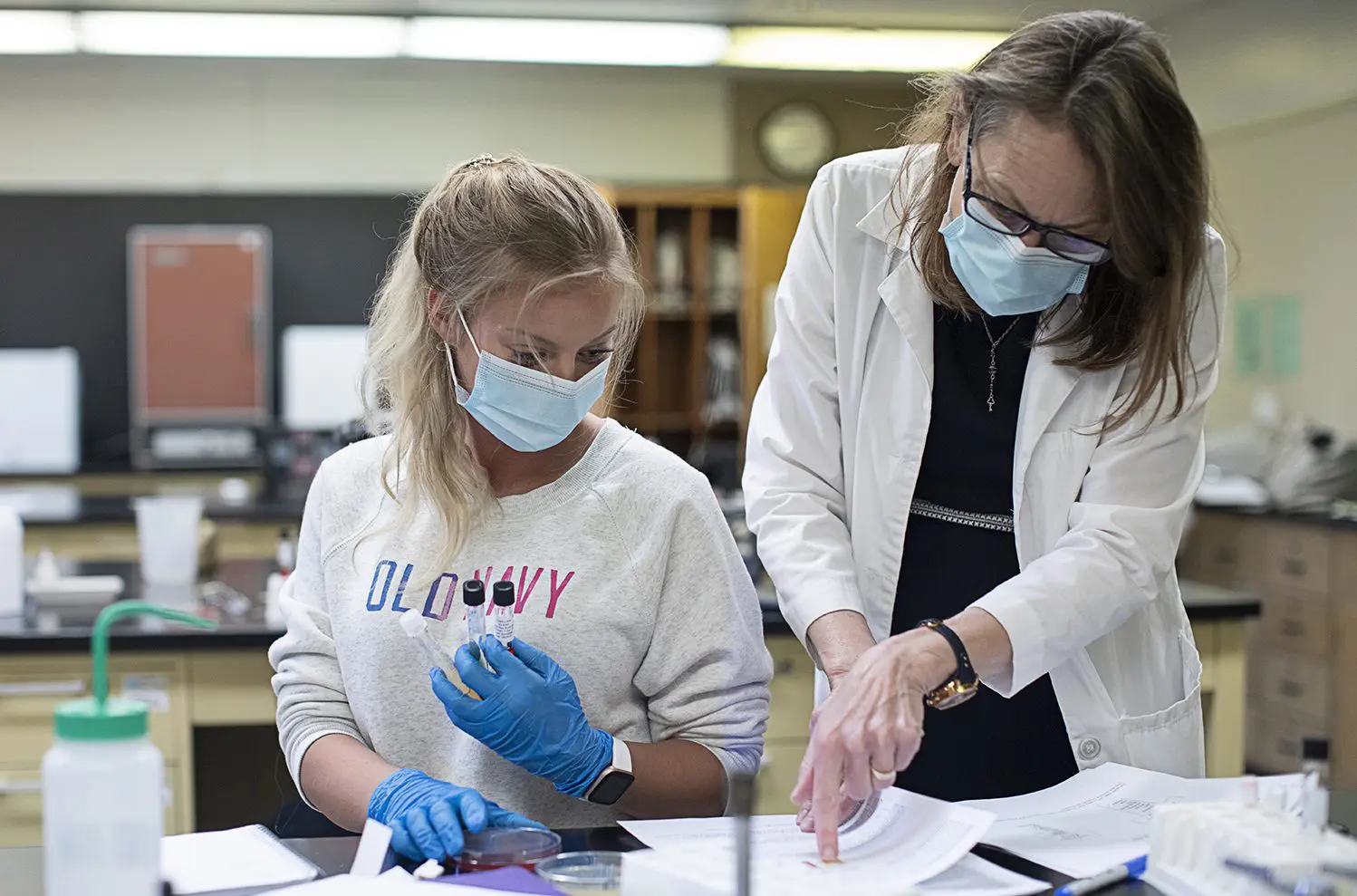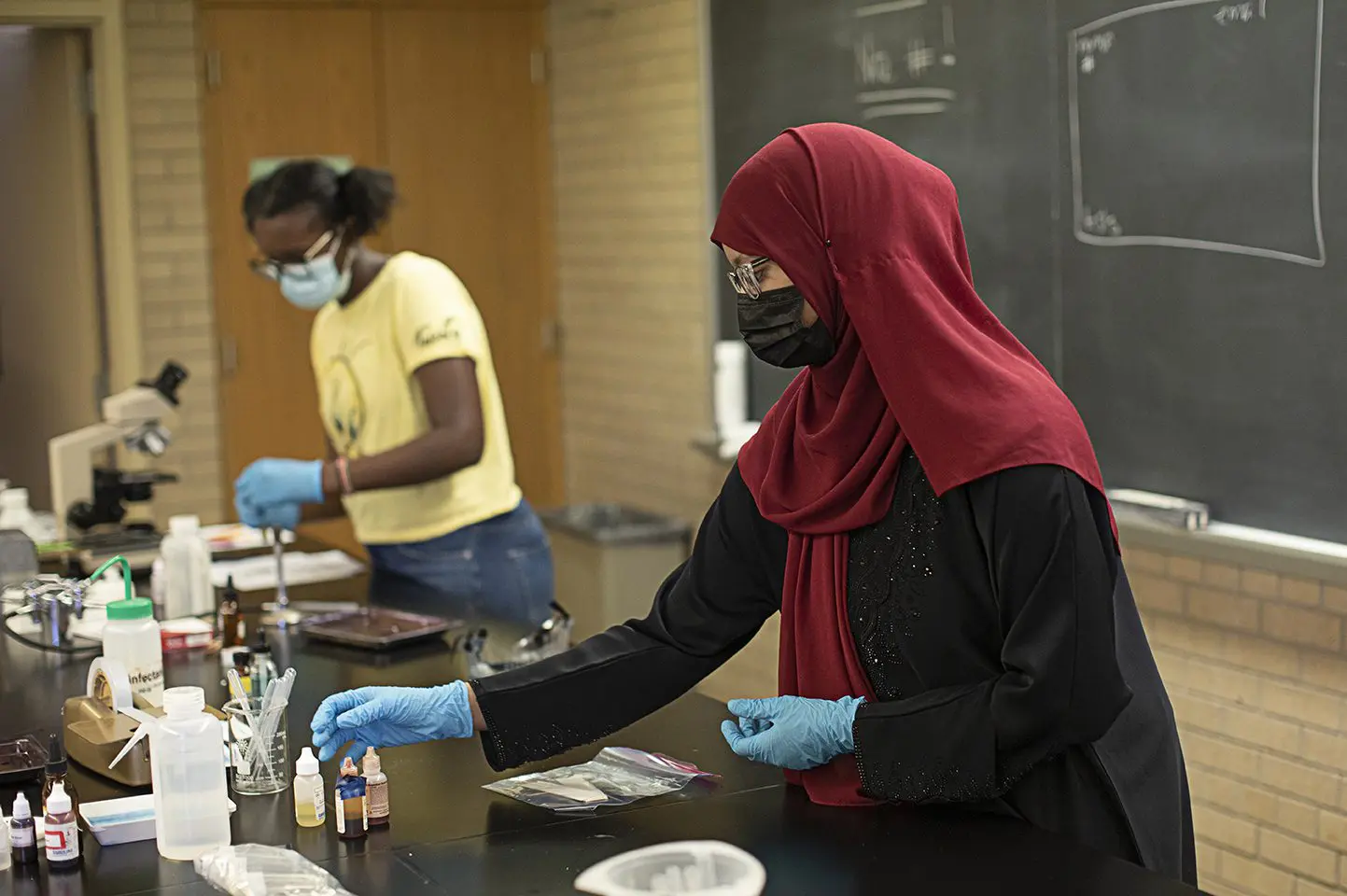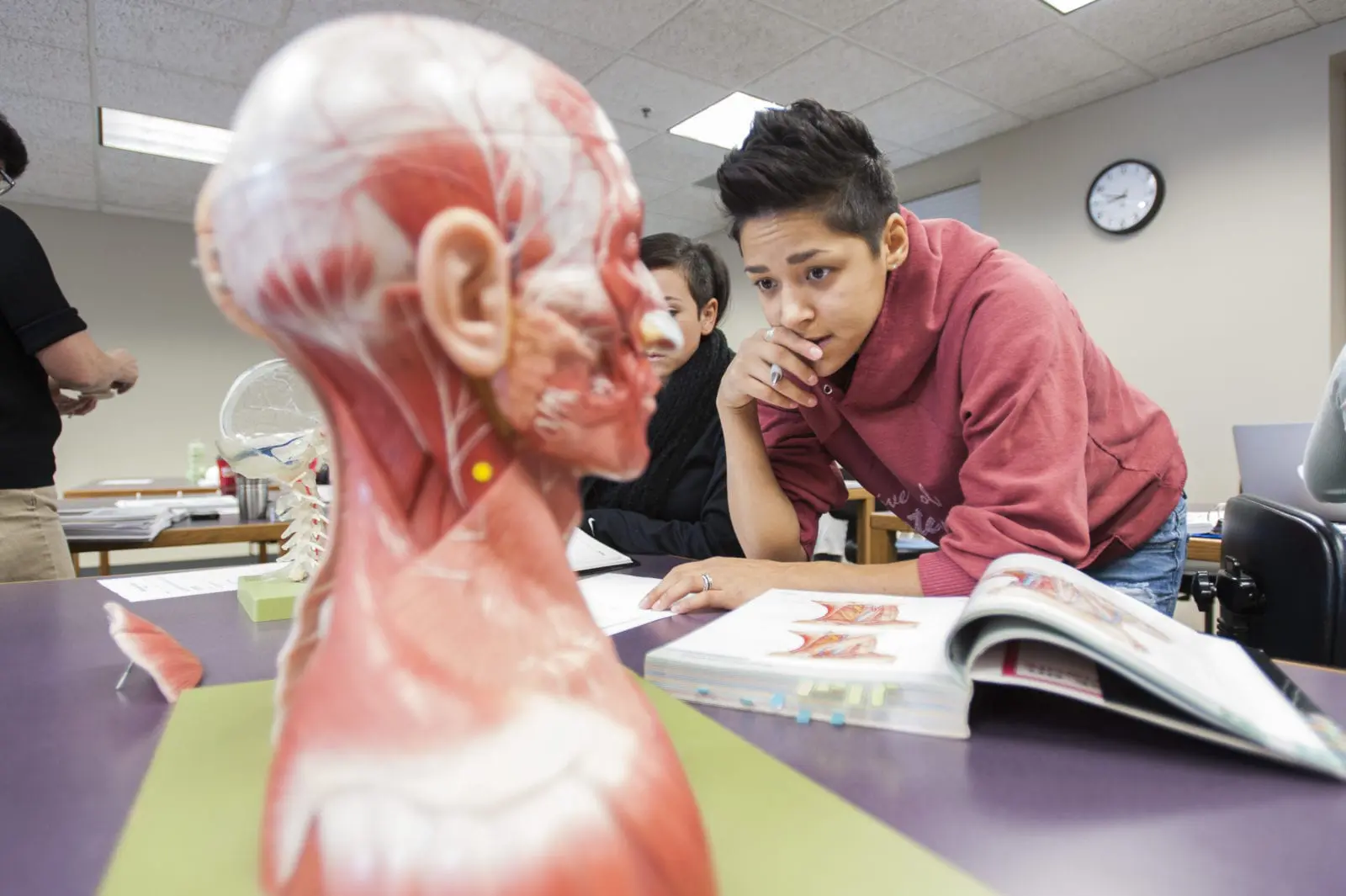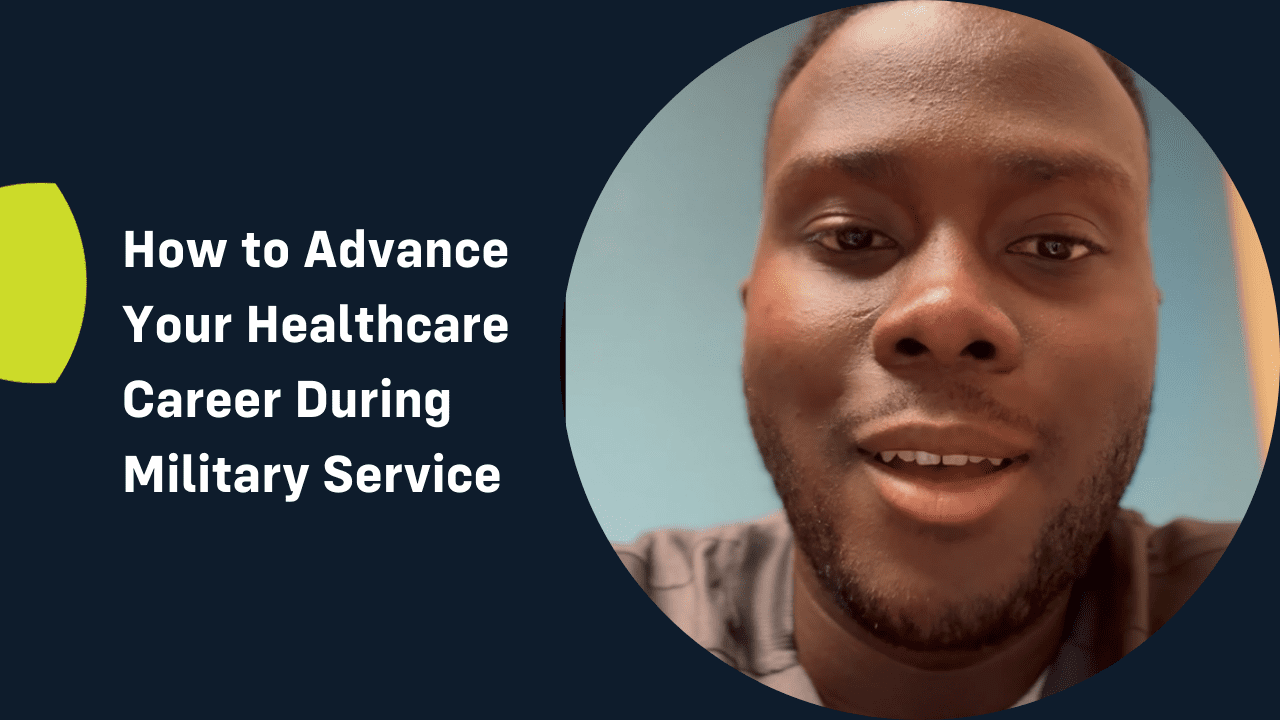What’s Stopping You From Switching to a Healthcare Career?
Switching to a Healthcare Career? If your dream career in healthcare seems out of reach because you’re not ready for medical school, PA school, or a similar education path, you may want to consider a post-baccalaureate pre-medical program. Find out if this option could be right for you.
A post-bacc pre-med program can increase your chances of being accepted into a professional healthcare program—and bring you one step closer to that dream job.
We take a close look at four common challenges that prevent people from applying to a professional healthcare program like med school. We also explain how a post-bacc pre-med program can help. See if your situation matches one or more of the following. If so, you may want to consider a post-bacc pre-med program.
(Note: If you’re already looking at post-bacc programs, be sure to check out Choosing the Right Post-Baccalaureate/Pre-Med Program: 10 Key Questions to Ask.)
1. You don’t have the science prerequisites
Let’s say you graduated college with a high GPA, but it was in a major like English, business, or some other subject that didn’t require a lot of science courses. You’re now working, and possibly even excelling, in a field unrelated to healthcare.
But you feel unfulfilled. You keep thinking you may have missed your calling as a medical doctor or some other healthcare professional.
Assuming your undergrad academic performance was indeed stellar, your biggest hurdle to getting into med school or a similar professional healthcare program will likely be the prerequisite science courses you haven’t completed.
How a post-baccalaureate pre-med program can help you
A post-bacc pre-med program can give you a clear, structured path to completing those science prerequisites.
More specifically, the best post-bacc pre-med programs provide professors who have experience teaching students just like you. They’re not only familiar with your unique needs as a post-bacc student; they’re prepared to offer one-on-one support to help you do well in your courses.
Sure, you could try and complete each prerequisite course at, say, a local college or university. But you’ll likely be just another student in a sea of young undergrads. And you’ll largely be on your own.
That won’t make for a very effective learning environment, especially if you’re intimidated by all the science courses you need to take—and do extremely well in.
2. You come from a technical field unrelated to healthcare
Perhaps you’re working in a field like engineering, but you want to help people in a more direct way—and you think a healthcare career could be what you’re looking for. Your undergraduate grades are strong and you even have quite a few of the science prerequisites completed.
However, in order for you to be a truly competitive applicant to a professional healthcare program, you’ll ideally want to have some kind of experience in the healthcare arena.
How a post-baccalaureate pre-med program can help you
First, you may still need to complete some prerequisite courses, and a post-bacc pre-med program can be an excellent option for doing that (see No. 1). But where a program like this can really help someone like you is by connecting you to valuable volunteering and job-shadowing opportunities.
Activities like these may be more important than you realize, especially as acceptance rates into med school become increasingly competitive. Among other benefits, volunteering and job-shadowing help demonstrate to a given admissions committee that you’re sincerely interested in a healthcare path.
But finding these kinds of opportunities can be difficult on your own. The good news is that a quality post-bacc pre-med program can, for example, give you access to an extensive network of clinics, community partnerships, and other connections to help make your search much easier.
3. Your undergraduate grades aren’t strong
When you apply to a professional healthcare program like med school, the program’s admissions committee will be looking closely at your undergraduate academic performance.
And even if you had a formal pre-med major or took a similar path with a major like human biology, if your grades aren’t especially strong, you’re going to find it more difficult to be accepted.
How a post-baccalaureate pre-med program can help you
To begin with, it’s crucial to understand that you can’t actually “replace” your original undergraduate grades. However, if you need to prove you’ve mastered subjects you didn’t excel in as an undergrad, a post-bacc program can be an effective way to do that.
It enables you to retake courses—upper level science courses in particular—and in the process it gives you the chance to show an upward trend in your academic performance. That’s really what an admissions committee will be looking for if your undergraduate GPA is less than ideal.
Additionally, most medical schools value a strong performance in a post-bacc pre-med program, and in terms of importance, the Association of American Medical Colleges ranks this right below undergrad GPA and MCAT score.
Although you could opt for a DIY path for retaking courses, that may not be the best move. Similar to the point made in No. 1, you’ll essentially be taking courses on your own and won’t have the various advantages that a formal post-bacc pre-med program can provide, like being taught by professors who have experience helping students just like you.
(For more information, check out 8 Things to Know About Improving Your GPA to Get Into Medical School and Other Professional Healthcare Programs.)
4. You lack the knowledge and support needed to improve your overall chances of acceptance
We’ve spent a lot of time on the topic of coursework. But making yourself a stronger applicant will likely involve much more than taking prerequisite courses and/or improving upon old grades.
Finding good opportunities for doing volunteer work and job-shadowing are two examples we’ve touched on in No. 2.
But there are many more aspects to the application process—and numerous other considerations to make on your path to applying. How can you be certain you’re doing everything you can to make yourself a more attractive applicant? When you’re going it alone, that can be extremely difficult.
How a post-baccalaureate pre-med program can help you
When enrolling in a post-bacc pre-med program, you’re paying for courses to take. But the best programs also provide you valuable support that goes way beyond the coursework (and is also free of charge). This can make a significant difference as you work to become a better candidate for your target healthcare program.
Consider the following examples:
Benefit from individualized guidance from the very beginning. You may not even know with certainty what courses you actually need to take (or retake). In fact, you’ll likely have many questions about the overall path for applying to your target schools.
That’s why one-on-one support is so beneficial. At Northwestern Health Sciences University (NWHSU), for instance, you meet individually with an experienced advisor who helps you create a customized schedule and an overall plan based on your background, academic needs, and career goals.
That personalized attention continues as you apply to professional programs. Every post-bacc student at NWHSU is assigned a faculty advisor to guide them through the application process and help them find resources to assemble the most competitive application possible.
Check out this video to understand more about the post-bacc pre-med opportunities at NWHSU.
Get help with specific steps in your application process.
Post-bacc pre-med faculty can also support your efforts by, for example:
- Providing letters of recommendation
- Offering insights on how to develop a compelling personal statement
- Helping you prepare for entrance exams (see more on this below)
Prepare more effectively for your entrance exam.
If you want to be a medical doctor or doctor of osteopathic medicine, you need to take the Medical College Admission Test (aka the MCAT). Dental school requires the Dental Admission Test. Other healthcare programs have their own entrance exam equivalent.
The courses you take in a post-bacc pre-med program can help prepare you to take your entrance exam. But you can also benefit from a post-bacc program’s special preparatory classes and seminars that are specifically intended to get you ready for a given entrance exam.
Gain access to other valuable opportunities.
A post-bacc pre-med program can also give you a number of other benefits:
- Have a built-in support network of fellow students with similar goals
- Participate in mock interviews to prepare for the real thing
- Connect with current and retired medical professionals for insights and advice
- Be mentored by a current medical student
- Practice taking entrance exams
Receive ongoing guidance.
If you end up reaching your original goal, that’s great. But what if you don’t?
Your post-bacc pre-med program—and the valuable connections you established—may still be available for support on what your next steps can be.
At NWHSU, for instance, you can continue to seek guidance, even when you’re technically no longer a student. That means you can attend ongoing seminars, speak with your former advisors and professors, and take advantage of the same resources you had as an enrolled student.
Your next step: Reach out now
The information above is intended to help you understand just how a post-bacc pre-med program can be helpful. Did it resonate with you? If so, then you should take the next step to learn more.
And don’t put it off. If you’d like to begin applying to professional healthcare schools soon, be prepared: Completing coursework and making yourself an overall stronger applicant may take longer than you think.
Learn more about NWHSU’s Post-Baccalaureate Pre-medical Program and take a step closer to a new career in healthcare!
